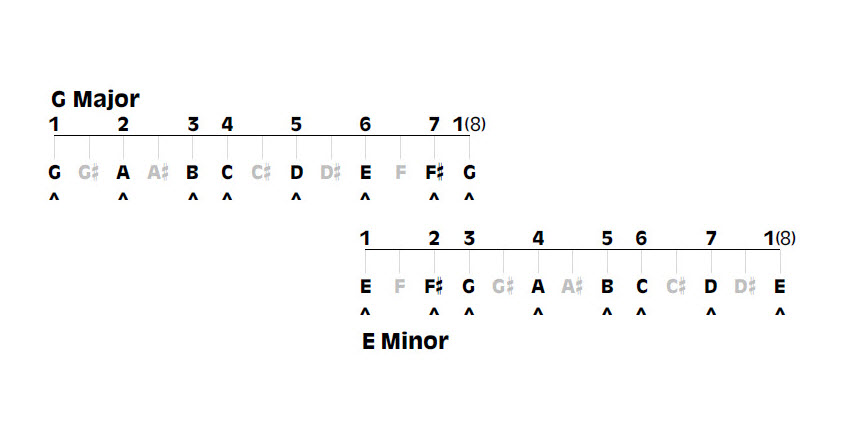You Are Reading the First 6 FREE Chapters (470 pages)
E Minor, Relative Major, and the Definition of Chromatic
A chromatic note is a note that does not belong to the prevailing diatonic scale. The graphic below shows the E minor scale and how it relates to its relative major, the G major scale.

FIGURE 35: How G Major and E Minor Relate to Each Other
It’s important to note here that F♯ in the above pair of scales is not a chromatic note, even though it has the “sharp” sign (♯) after it.
Since a given diatonic scale has seven notes, there must be five notes that are chromatic with respect to that scale. In the above case, the five chromatic notes are: G♯, A♯, C♯, D♯, and F. They are the notes in between G, A, B, C, D, E, and F♯.
The same applies in harmony. In Chapter 6, you’ll learn about chromatic chords. These are chords that do not belong to the prevailing harmonic scale.

